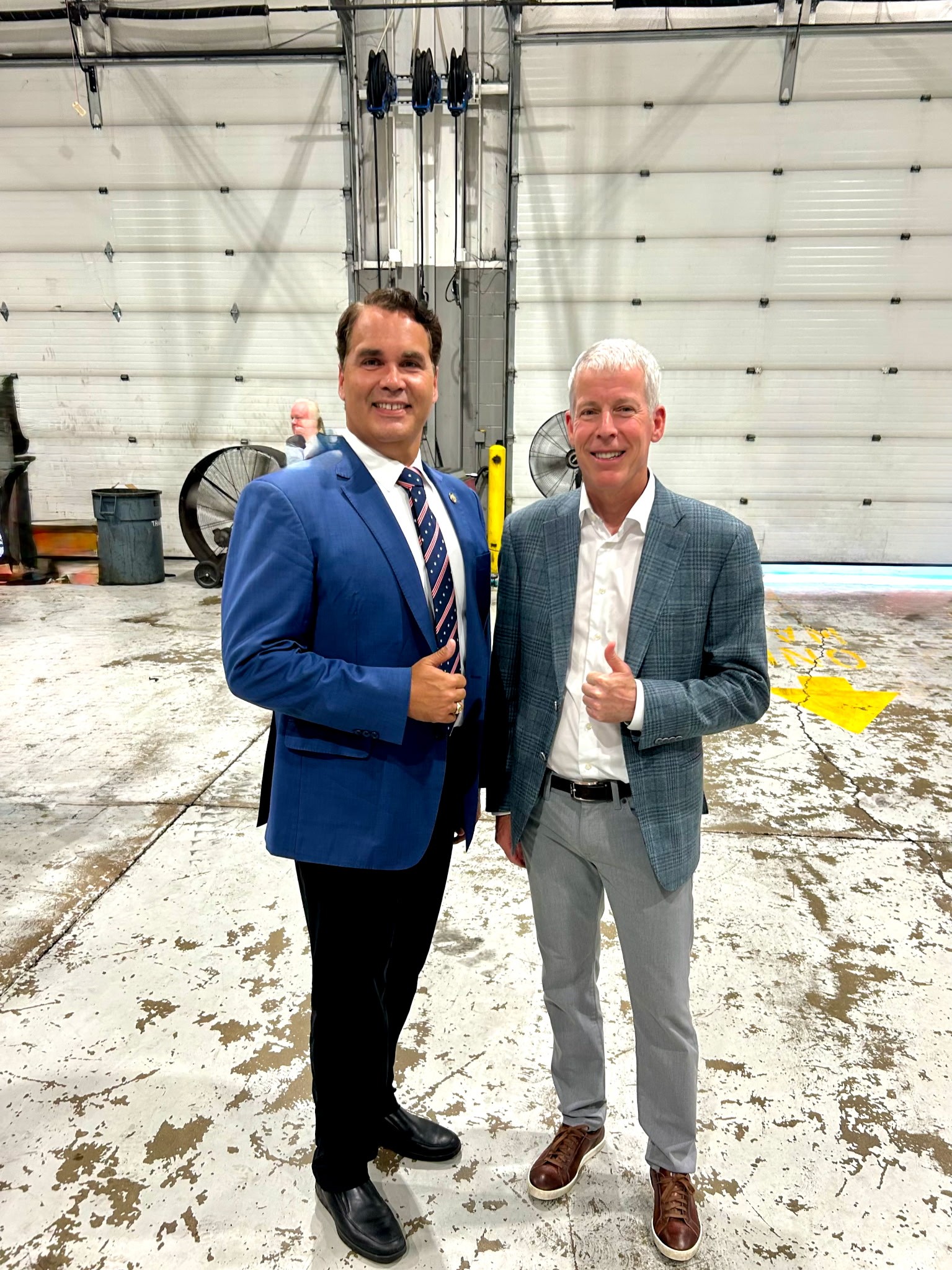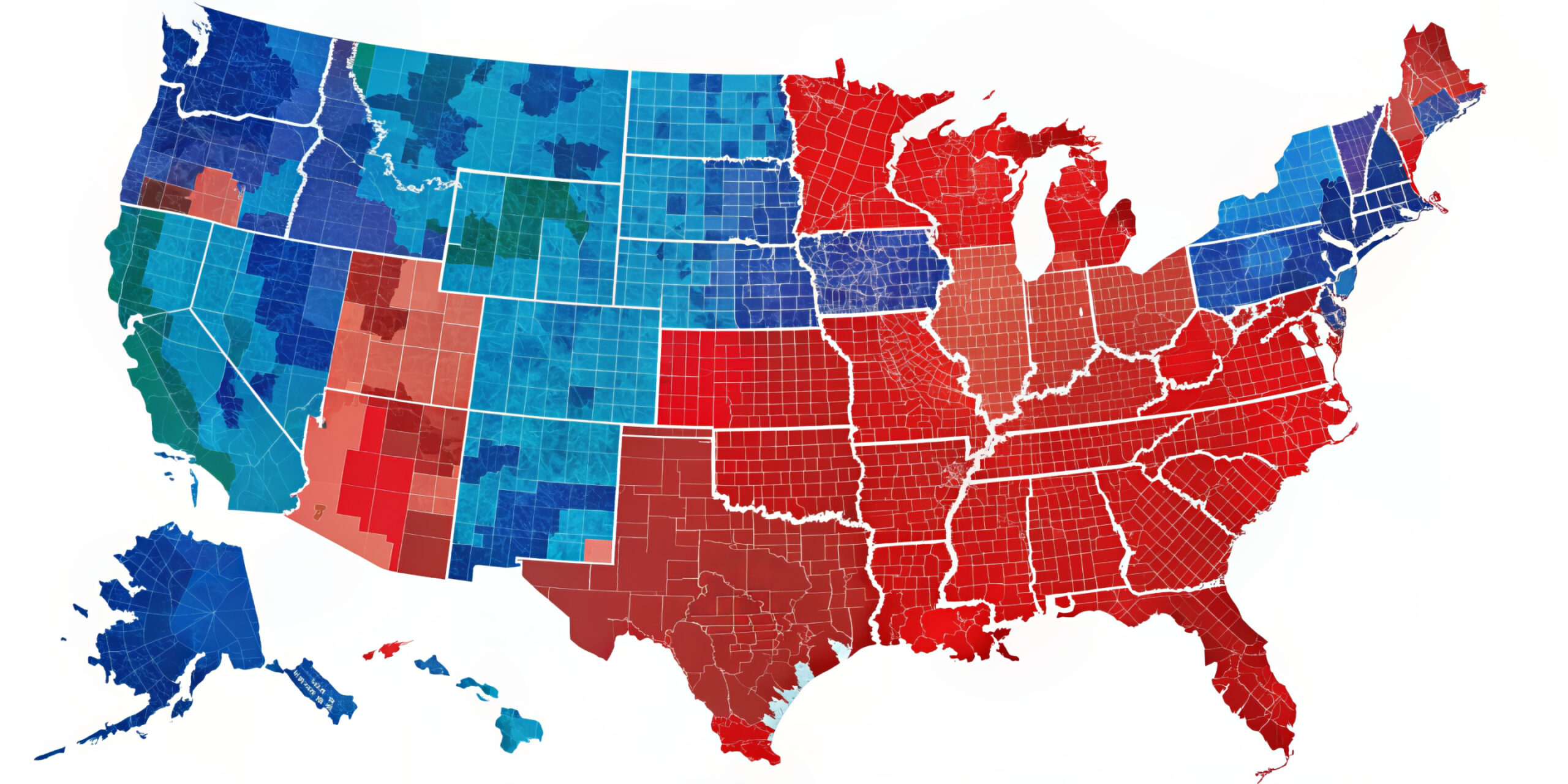“It’s About Time”: Baird Cheers Trump-Era Push to End EPA Overreach

On July 30, State Rep. Beau Baird joined U.S. Secretary of Energy Chris Wright and EPA Administrator Lee Zeldin in Indianapolis for a major announcement regarding energy policy and environmental deregulation. The proposal, unveiled at an Indiana auto dealership, aims to rescind the 2009 Endangerment Finding—used for over a decade as the legal basis for regulating greenhouse gas emissions from vehicles. If finalized, the rollback could eliminate more than $1 trillion in regulatory burdens and save Americans an estimated $54 billion annually.
Baird, who chairs the Indiana House Environmental Affairs Committee, was among several state and national leaders in attendance. He voiced strong support for the move, calling it a necessary step toward restoring economic freedom and consumer choice.
“For years, Hoosiers and hardworking Americans have paid the price for overreaching regulations that never delivered results,” Baird said. “This is about restoring choice, lowering costs, and advancing policy that supports the environment while fostering economic growth. I applaud President Trump and Administrator Zeldin for their leadership and for putting American families first.”
The Endangerment Finding, first issued in 2009, served as the foundation for a series of federal mandates, including the Biden-Harris administration’s electric vehicle (EV) standards. Under the new EPA proposal, all related greenhouse gas regulations for motor vehicles and engines—including light-, medium-, and heavy-duty vehicles—would be repealed. The change is expected to lift restrictions such as mandatory start-stop technology and other features that automakers have implemented to meet federal standards.
Administrator Zeldin explained that the EPA’s updated stance reflects new scientific data and a legal framework shaped by recent U.S. Supreme Court rulings. These decisions, including West Virginia v. EPA and Loper Bright Enterprises v. Raimondo, have reaffirmed that major policy changes must be made by Congress, not administrative agencies.
“In our work so far, many stakeholders have told me that the Obama and Biden EPAs twisted the law, ignored precedent, and warped science to achieve their preferred ends and stick American families with hundreds of billions of dollars in hidden taxes every single year,” Zeldin said. “If finalized, rescinding the Endangerment Finding would end $1 trillion or more in hidden taxes on American businesses and families.”
Baird’s appearance at the event reaffirmed Indiana’s emerging influence in national energy discussions. Earlier this year, he invited Administrator Zeldin to return to the state for an environmental roundtable and a tour of sites showcasing Indiana’s leadership in conservation and sustainability. The state has made significant progress through innovative public-private partnerships, and Baird has been a vocal proponent of practical, locally driven solutions.
Supporters of the repeal argue that the proposed rollback is long overdue. Since 2009, critics have contended that the Endangerment Finding was based on broad assumptions rather than precise science. The Obama-era interpretation of the Clean Air Act categorized carbon dioxide emissions—alongside five other gases—as a threat to human health and welfare, despite little clarity on direct causation or proportional harm. That determination became the legal backbone for a regulatory structure that many believe went far beyond the EPA’s statutory authority.
With this new proposal, the EPA plans to open a public comment period, giving Americans the opportunity to weigh in. If approved, the rule change would not only eliminate existing greenhouse gas standards but also prevent similar rules from being imposed under the same authority in the future.
Baird emphasized that this effort is about more than deregulation. It’s about aligning federal policy with real-world data, technological advances, and economic practicality.
“This is a commonsense approach,” he said. “We can support environmental progress without punishing the very industries and families that keep America moving. Indiana proves it’s possible to do both.”
The event in Indianapolis marks another step in the broader Trump administration agenda to review and rescind federal regulations that have accumulated over the past two decades. For Baird, it also reinforces Indiana’s role in shaping that future—one where innovation, not federal overreach, drives environmental and economic outcomes.
RECENT










BE THE FIRST TO KNOW
More Content By
Think American News Staff











